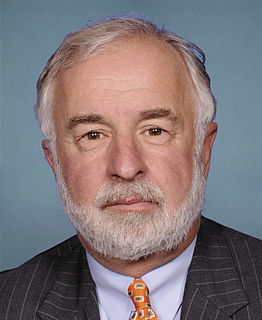A Quote by Tim Bishop
Inflation outstripped real wages for people who work for pay from others.
Related Quotes
Sharp increases in the minimum wage rate are also inflationary. Frequently workers paid more than the minimum gauge their wages relative to it. This is especially true of those workers who are paid by the hour. An increase in the minimum therefore increases their demands for higher wages in order to maintain their place in the structure of wages. And when the increase is as sharp as it is in H.R. 7935, the result is sure to be a fresh surge of inflation.
The drum-fire of propaganda that the Fed is manning the ramparts against the menace of inflation brought about by others is nothing less than a deceptive shell game. The culprit solely responsible for inflation, the Federal Reserve, is continually engaged in raising a hue-and-cry about 'inflation,' for which virtually everyone else in society seems to be responsible. What we are seeing is the old ploy by the robber who starts shouting 'Stop, thief!' and runs down the street pointing ahead at others.
If a market exists for low-paid work, then we should think about how we can make this type of work more attractive by providing government assistance. Of course, the wage-earner must be able to live off of his wages. We will not allow poverty wages or dumping wages. But the wage earner can receive a combined wage that includes both his actual wages and a government subsidy.
































